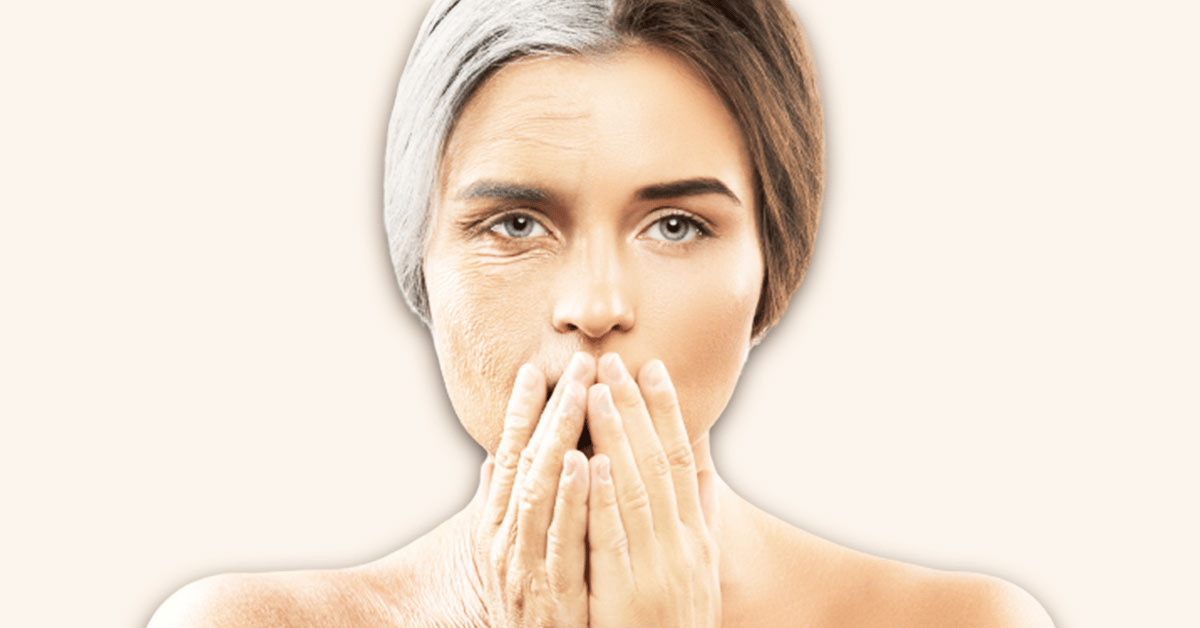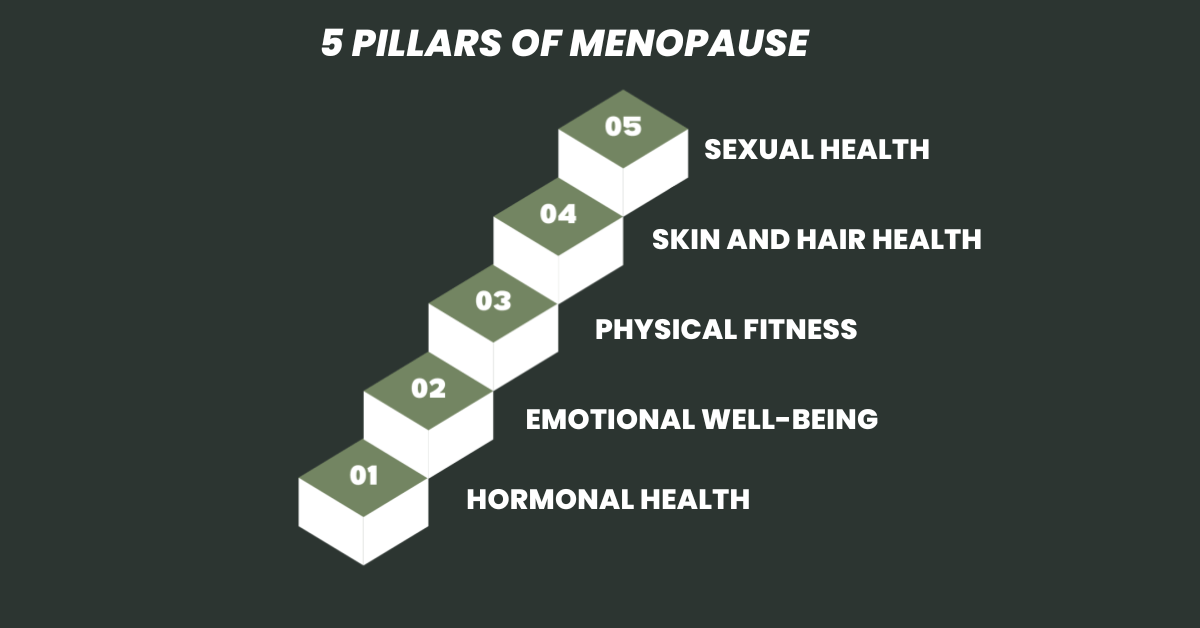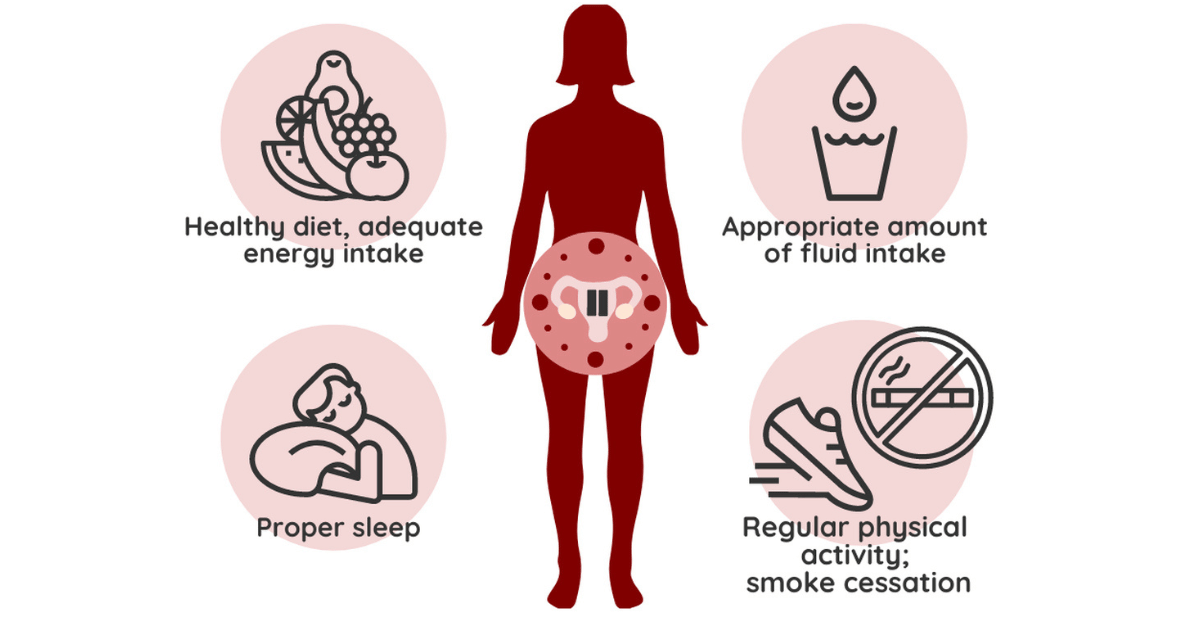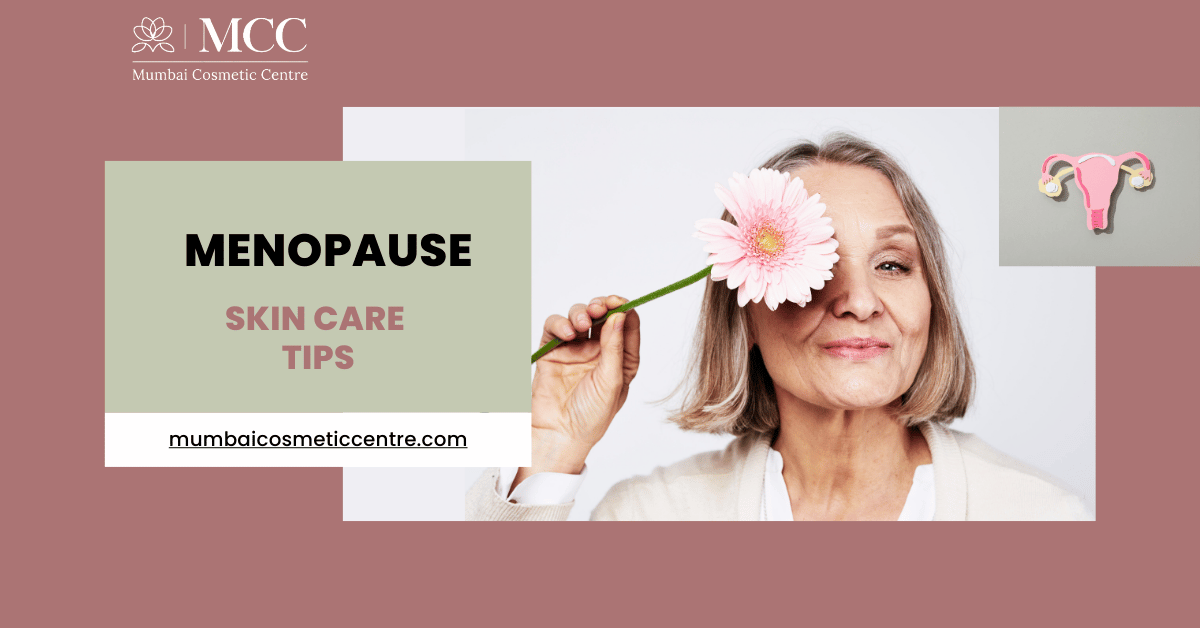Introduction
Menopause is a natural phase in every woman’s life, marking the end of her reproductive years. While it’s a significant milestone, it often comes with physical and emotional changes—especially noticeable in the skin. From dryness and wrinkles to a sudden loss of glow, menopause can visibly affect your skin’s appearance and texture.
Understanding how menopause influences skin health is key to feeling confident and radiant during this transition. In this blog, we’ll uncover what happens to your skin during menopause, identify the most common concerns, and share practical, expert-backed tips to help you maintain a youthful, glowing complexion. We’ll also answer popular questions like “What is the best thing for menopausal skin care?” and “How to handle menopause naturally?”
Want to take your skincare to the next level? We’ve got you covered! Check out our new blog: Chemical Peel Secrets for Flawless Skin to explore how this powerful treatment can help you glow through menopause.
Understanding Menopausal Skin Care

To care for your skin during menopause, it’s important to understand what’s happening inside your body.
What is Menopause?
Menopause is defined as the time when a woman hasn’t had a menstrual period for 12 consecutive months. This usually occurs between the ages of 45 and 55. The transition into menopause, known as perimenopause, can last several years.
Hormonal Changes
The biggest factor affecting your skin during menopause is the sharp decline in estrogen. Estrogen plays a key role in collagen production, hydration, and maintaining skin thickness. When it drops, the skin begins to lose elasticity, become drier, and may start to sag or wrinkle.
What Are the 5 Pillars of Menopause?
To better understand the impacts of menopause, experts often refer to the five pillars:

1. Hormonal Health
This pillar focuses on the changes in estrogen and progesterone levels that influence everything from mood to metabolism. Managing hormonal balance is key to easing symptoms like hot flashes, night sweats, and irregular cycles.
2. Emotional Well-being
Fluctuating hormones can impact mental health, causing mood swings, anxiety, or depression. Prioritizing stress management, self-care, and emotional support is essential during this phase.
3. Physical Fitness
Menopause can lead to weight gain and joint stiffness, making regular exercise more important than ever. Staying active improves energy, boosts mood, and supports heart and bone health.
4. Skin and Hair Health
Reduced collagen production can cause dry, sagging skin and thinning hair. A dedicated skincare routine and proper nutrition help maintain a healthy, youthful appearance.
5. Sexual Health
Menopause may bring vaginal dryness or a drop in libido due to lower estrogen levels. Open communication and medical or non-surgical treatments can help restore comfort and intimacy.
Each of these pillars is interconnected, and proper care in one area can benefit the others.
Common Menopause Skin Care Concerns
Skin changes vary from woman to woman, but there are a few key symptoms that are widely experienced.
1. Dryness and Itchiness
Reduced estrogen levels mean your skin produces less natural oil, leading to dryness, flakiness, and discomfort.
2. Wrinkles and Fine Lines
Less collagen and elastin mean skin loses its firmness, causing sagging and more visible wrinkles.
3. Thinning Skin
The skin becomes more fragile and sensitive, especially on the face, neck, and hands.
4. Acne and Breakouts
Hormonal fluctuations can trigger adult acne, even if you never dealt with it in your younger years.
What is the Biggest Symptom of Menopause?
Hot flashes are commonly cited as the biggest and most disruptive symptom, but skin-related concerns are often underestimated—yet they deeply affect self-esteem.
Menopause Skin Care: Easy & Effective Tips
Menopause affects the skin by causing dryness, wrinkles, and loss of elasticity, but a healthy lifestyle can help maintain its glow. Staying hydrated, eating a nutrient-rich diet, and getting proper sleep support skin health from within. Regular exercise, stress management, and avoiding smoking further promote a youthful, radiant complexion.

The good news? With the right skincare routine and lifestyle adjustments, you can manage menopausal skin changes effectively.
1. Moisturize Religiously
Choose a rich, hydrating moisturizer with hyaluronic acid, ceramides, or peptides. Apply it twice daily—especially after cleansing.
2. Use SPF Every Day
Sun protection is non-negotiable. Use a broad-spectrum SPF 30 or higher daily to prevent premature aging and pigmentation.
3. Switch to Gentle Cleansers
Avoid harsh soaps that strip your skin. Use fragrance-free, hydrating cleansers that maintain the skin’s natural pH.
4. Include Retinol or Bakuchiol
Retinoids boost collagen and help with fine lines. If your skin is sensitive, try bakuchiol—a natural, gentler alternative.
5. Nourish from Within
A diet rich in omega-3 fatty acids, antioxidants, and vitamins can support skin health. Drink plenty of water, and don’t underestimate the power of beauty sleep.
Natural Ways to Handle Menopause Skin Care
If you’re looking for a holistic approach, these natural remedies can support both your skin and your overall well-being:
- Herbal Supplements: Black cohosh, red clover, and evening primrose oil are popular for managing hormonal symptoms.
- Mindfulness Practices: Yoga and meditation help regulate mood swings and promote better sleep—both of which benefit your skin.
- Regular Exercise: Boosts circulation, enhances skin glow, and supports hormone balance.
- Hydration & Balanced Diet: What you eat reflects on your skin. Fresh fruits, vegetables, and healthy fats keep skin supple and glowing.
What Is the Best Thing for Menopausal Skin care?
Consistent skincare tailored to aging skin, coupled with a healthy lifestyle and possibly hormone therapy (under medical supervision), offers the best results.
Expert Care at Mumbai Cosmetic Centre
If you’re navigating menopause and struggling with skin concerns, expert guidance can make all the difference. Mumbai Cosmetic Centre in Malad offers transformative face, hair, skin, IV, laser procedures, and cosmetic gynecology treatments designed to restore confidence.
Led by the highly skilled Dr. Shruti Shah, a pioneer in non-surgical procedures like HIFU vaginal tightening and hymenoplasty, and Dr. Chetan Shah, a respected board-certified anesthesiologist, the clinic is committed to safe, result-driven care.
They specialize in:
Mumbai Cosmetic Centre stands out for its specialized services in cosmetic gynecology and aesthetic treatments. The clinic offers advanced, non-surgical solutions such as Hymenoplasty, Vulvoplasty, Vaginal HIFU, and the non-operative management of vaginal dryness and stress urinary incontinence. These procedures are tailored to address intimate concerns with discretion, comfort, and care. The clinic is led by Dr. Shruti Shah, a renowned expert known for integrating the latest technologies with a compassionate approach. Alongside her, Dr. Chetan Shah, a board-certified anesthesiologist with extensive experience, ensures patient safety and comfort throughout every procedure. Together, they provide holistic care for women navigating changes during and beyond menopause.
📍 Visit them at:
Mumbai Cosmetic Centre
1st Floor, Milap Apt, Swami Vivekananda Rd, Opp. Milap PVR Cinemas, Malad West, Mumbai, Maharashtra 400064
📞 Call or WhatsApp: +91-7400188399
📩 Email: mccmumbaicosmeticcentre@gmail.com
Book your personalized consultation today and let expert hands guide you through your transformation.
Frequently Asked Questions (FAQs)
1. Can menopause really cause acne?
Yes. Hormonal fluctuations during menopause can lead to increased oil production and adult acne, especially around the jawline.
2. Should I use hormone replacement therapy (HRT) for skin issues?
HRT may help with skin elasticity and dryness, but it should only be considered after consulting a qualified doctor.
3. Is it safe to use retinol after menopause?
Yes, retinol can be very effective for aging skin, but always start with a low concentration and build up slowly.
4. How long do menopausal skin changes last?
Skin changes can begin in perimenopause and may persist post-menopause. A proper routine can help manage and reduce their impact.
5. What ingredients should I avoid in skincare during menopause?
Avoid alcohol-based products, sulfates, and artificial fragrances that can dry out or irritate the skin.
6. Can diet really improve menopausal skin?
Absolutely! A balanced diet rich in omega-3s, antioxidants, and hydration plays a crucial role in skin health.
7. How do I know if my skincare routine is working?
If your skin feels hydrated, looks brighter, and you notice fewer breakouts or irritation, you’re on the right track.
8. Are professional treatments worth it?
Yes, treatments like hydrafacials, collagen boosters, or IV drips from certified clinics can significantly improve skin quality.
Conclusion
Menopause is a beautiful yet challenging phase of life, and while skin changes are natural, they don’t have to define how you feel. With the right care, informed choices, and possibly expert help, you can enjoy radiant, healthy skin well into your golden years.Remember, you’re not alone on this journey—and you deserve to feel confident in your skin. Consult with specialists like those at Mumbai Cosmetic Centre to explore solutions tailored just for you.
